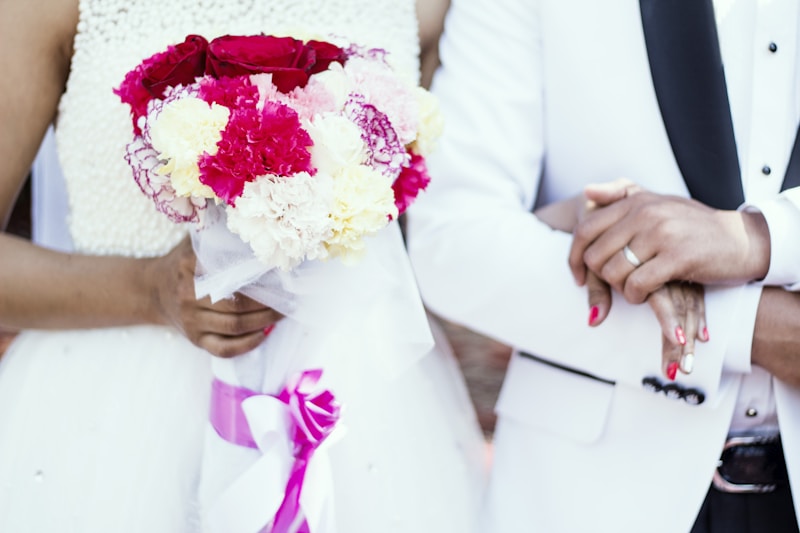The Psychology of Choosing the Right Wedding Planner
The Psychology of Choosing the Right Wedding Planner
Planning a wedding can be one of the most exciting yet daunting tasks for couples. With countless decisions to make, from the venue to the color theme, one of the most critical choices is selecting the right wedding planner. Understanding the psychology behind this decision can help couples not only make a well-informed choice but also create an unforgettable wedding experience.
Understanding the Importance of a Wedding Planner
Wedding planners are professionals who assist couples in organizing their special day, ensuring every detail aligns with the couple's vision. However, the selection process can often be overwhelming due to the plethora of options available. To navigate this journey effectively, it's crucial to understand the psychological aspects that influence decision-making when selecting a wedding planner.
| Factors Influencing the Choice of a Wedding Planner |
| 1. Budget Considerations |
| 2. Planning Style and Personality |
| 3. Recommendations and Reviews |
| 4. Communication Skills |
| 5. Availability and Reliability |
Budget Considerations
A significant aspect of wedding planning is budget management. Couples often feel pressured to stay within a limit, which directly impacts their choice of wedding planner. Understanding the psychology of budgeting can lead to a more focused search. Couples should evaluate the pricing structure of different planners to find one that aligns with their financial constraints.
Moreover, it’s essential to be aware of the psychological impact of perceived value. A more expensive planner may evoke feelings of confidence in quality, while a less pricey option could generate skepticism. Always weigh the pros and cons and consider that a good wedding planner can often save you money in the long run through effective negotiations and vendor relationships.
Planning Style and Personality
The personality of the couple plays a crucial role in the selection of a wedding planner. It’s essential to find someone whose style resonates with the couple’s vision. The connection made during initial consultations can often guide the psychological comfort level couples experience. A good planner should reflect the couple's taste and preferences, which contributes to a seamless collaboration.

Additionally, understanding one's planning style—whether it is detail-oriented or big-picture focused—can influence the choice of the planner. Couples may find themselves drawn to planners who complement their organizational style, which enhances communication and reduces stress during the planning process.
Recommendations and Reviews
In the digital age, couples have access to countless reviews and recommendations online. The psychology of social proof suggests that people are more likely to trust the experiences of others. Couples often rely on feedback from friends, family, or online communities when selecting a wedding planner. A glowing review can evoke a sense of trust, while negative feedback can deter potential clients.
It's beneficial for couples to read a range of reviews to get a well-rounded understanding of each planner. Look for feedback that highlights specific traits such as consistency, creativity, and the ability to handle stress. Engaging in open discussions with previous clients can also provide deeper insights into the planner’s working style and effectiveness.
Communication Skills
Strong communication is the bedrock of a successful relationship between a couple and their wedding planner. The psychological effect of feeling heard and understood cannot be underestimated. Couples should prioritize planners who actively listen to their ideas and provide constructive feedback. This establishes trust and ensures that the final outcome aligns with the couple's expectations.
During initial meetings, couples should pay attention to how planners articulate their thoughts and respond to questions. Effective communication fosters stronger collaboration, minimizing potential misunderstandings as the planning process unfolds.
Availability and Reliability
The final psychological consideration involves assessing the availability and reliability of prospective wedding planners. A planner who is consistently responsive instills confidence in their commitment to the couple's wedding. Couples should be aware of the planner's other commitments and resource availability, ensuring they don’t compromise their wedding planning experience.
Additionally, evaluating how a planner manages their time can reflect their professionalism. A reliable wedding planner with a structured approach can mitigate stress and create a smoother planning process for couples, reinforcing their decision to choose them.
Common Questions Couples Ask When Choosing a Wedding Planner
When embarking on the journey to find a wedding planner, couples often have several questions. Here are some of the most frequently asked:
- What services do you offer, and what are your associated costs?
- Can you provide references from previous clients?
- How do you handle difficult situations that may arise during planning?
- What is your cancellation policy?
- Do you have preferred vendor lists, and how do you select them?
These questions delve deeper into the planner's capability and their approach to handling pressures that arise during planning. Couples should feel comfortable asking anything that concerns them, allowing for a clearer picture of whom to partner with.
Conclusion
Choosing the right wedding planner is a blend of emotional intelligence and practical consideration. Couples should be aware of the factors influencing their decisions, including budgets, personalities, communication styles, and reviews. By applying psychological insights throughout this process, couples can choose planners who not only meet their logistical needs but also resonate with them on a personal level.
In summary, prioritize open communication, seek recommendations, and evaluate your comfort levels with potential planners. Make sure to ask the right questions and trust your instincts. With the right planner by your side, your wedding day can truly reflect your dreams and wishes.
Remember, every couple is unique, and so is their wedding journey. The right wedding planner will help illuminate that uniqueness while navigating the complexities of planning, allowing for an enjoyable and stress-free experience leading up to your big day.
